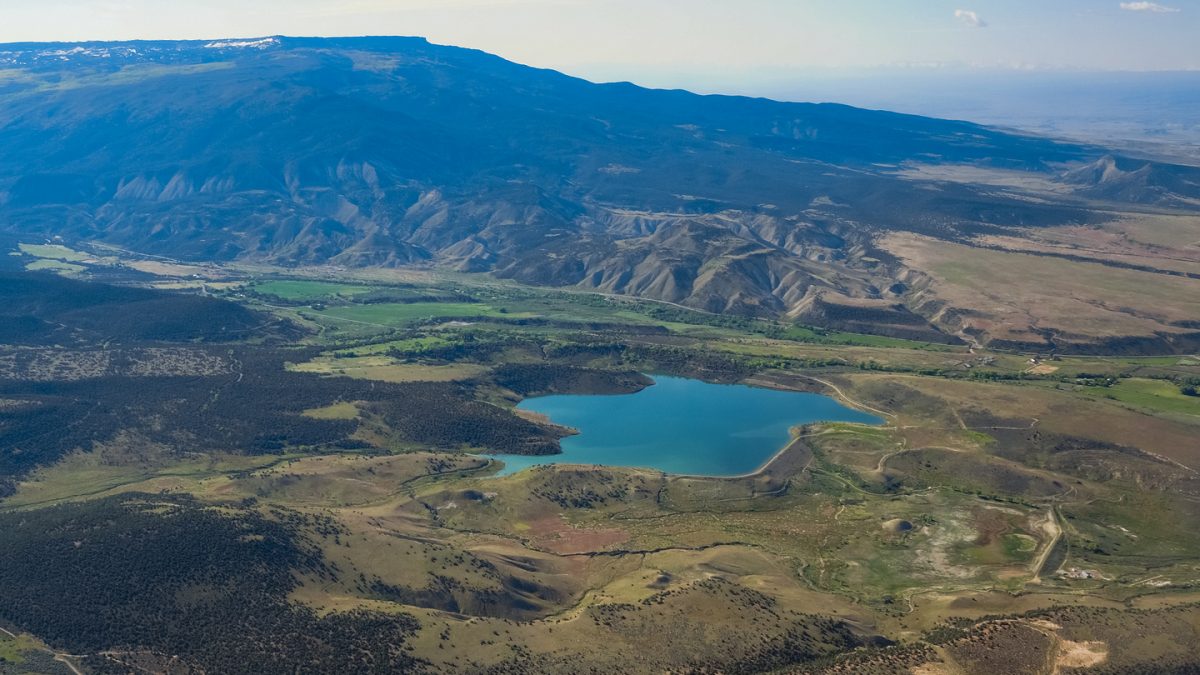- An Alliance For Community Action
- (970) 256-7650
- info@WesternColoradoAlliance.org
Protect Grand Junction’s drinking water, comment by August 28
Proposal to drill 108 oil wells in Grand Junction watershed too risky
The revised project threatens water and air quality
In late June, the Bureau of Land Management (BLM) released its long-awaited revised Environmental Assessment on a proposal to drill 108 oil wells in the Grand Junction watershed outside of Whitewater. WCC staff and leaders have finished our analysis of the new document and our concerns about threats to drinking water, air quality and overall quality of life for residents of the Grand Valley remain.
Help us protect our watershed and submit a comment to the BLM today.
The revised assessment does have a lot of new text, but fundamentally the project has changed very little from when we challenged it in 2014. Although no drilling will be occurring directly in the hydrologic watershed that feeds Grand Junction’s reservoirs, drilling pads and access roads are proposed in areas with springs and streams that supply critical water to local ranchers as well as supplemental drinking water to the city.
As WCC has learned over decades of working with landowners impacted by oil and gas development, there is no 100% safe drilling project. Accidents happen, spills and leaks occur, trucks overturn and toxic chemicals can end up in water supplies. We believe the risks of this proposal are too great to our most precious resource in the valley: Water.
Here is a quick summary of our concerns. If approved in its current state, this project could:
- Harming our drinking water supply. The pads are proposed in the greater Grand Junction watershed, which provides drinking water to 60,000 people as well as local farms and ranches. BLM must fully protect our drinking water.
- Removing fresh, first use drinking water from the hydraulic cycle and permanently contaminating it for oil development. This is an inappropriate use of these resources, which should be prioritized and saved as drinking water.
- Creating more odor issues at the Deer Creek Waste Disposal pit. BLM proposes to take all of its waste water to this facility for disposal, which has been plagued with problems, negatively impacting nearby residents.
- Harming our air quality. More oil and gas development in our area could increase ozone levels and other pollutants that can cause respiratory illness.
- Increasing traffic and risk of accidents by putting 260 more vehicles on B Road, impacting residents and businesses.
- Negatively impacting the area for other recreational uses. The area has recognized value for hunting, biking, camping, and wildlife viewing. Oil development will devalue these other uses of our public land.
- Harming wildlife. In addition to impacting desert habitat for white-tailed prairie dogs and other keystone species, oil development will also impact big game habitat in the area.
It is also clear that BLM is working from outdated information. The E.A. is based on scoping information from 2011 and fails to offer the public a full range of alternatives to consider. BLM should re-analyze this proposal with an Environmental Impact Statement.
This project must be held to the highest standards possible, if allowed to happen at all. For more detailed suggestions for comments, click here. And don’t forget to send your comments to BLM before August 28 to ensure your voice is heard.
Also, the Mesa County Commissioners will be discussing their comments at a public meeting on Monday, August 21 at 9 a.m. at the Mesa Old County Court House if you would like to share your thoughts on this project with your elected officials.
Please get in touch with Emily Hornback at WCC if you have any other questions or need more information.
Emily stepped up as our staff director in 2017, but originally joined our team as a community organizer in 2013. Born and raised on the Western Slope, Emily graduated from Colorado State University and then had the privilege of learning from and working alongside organizers in Central and South America as well as Appalachian coal country. They returned to their home state to protect the land they love and work with fellow Coloradans for a healthy, just and self-reliant future for our rural communities. Emily enjoys organizing, exploring the Colorado Plateau, country music and punk concerts with equal passion.


